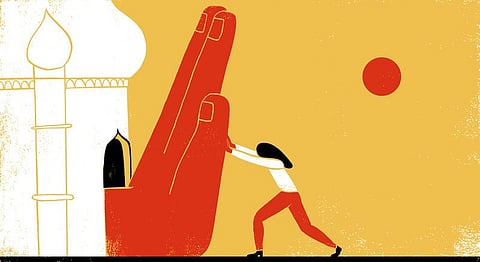
- HOMEGROWN WORLD
- #HGCREATORS
- #HGEXPLORE
- #HGVOICES
- #HGSHOP
- CAREERS
- ABOUT US
- CONTACT US

India still believes a variety of menstrual myths surrounding a completely natural female bodily process. In certain parts of India, rural as well as urban, women aren't allowed to cook, or enter temples and even kitchens because of their supposed impurity during that 'time of the month'. Several great initiatives have been launched to break this taboo, such as Nikita Azad's viral Happy To Bleed campaign.
Her campaign was a reaction to the president of the Travancore Devaswom Board, Prayar Gopalakrishnan’s controversial comment while addressing the Kollam Press Club on November 13 where he publicly declared that the board would consider lifting the age-old ban on women’s entry to the temple of Sri Ayyappan at Sabarimala in Kerala stating, “the day there will be a machine to detect if it's the 'right time' for women to enter temples, that day they will be allowed in Sabarimala." His comment struck a chord for women across the country. For years now, women of reproductive age have been banned from entering the revered temple—women aged 10 to 50 aren't permitted entry into the temple. Men are the only ones allowed to visit, that too after undergoing several days of ritual fasting and abstinence as well as other specific rituals for cleansing.
On Monday, the Supreme Court finally addressed the issue. A public interest litigation had been filed by the Young Lawyers Association seeking the abolishment of the archaic ban and permission for women of all ages to enter the temple. The hearing was a brief one and the rest of the case will be heard on February 8, but the court asked the government of Kerala and the temple board to make their stance on the matter clear and to respond to its notices about the ban. The bench questioned why women cannot be allowed inside since everybody has the right to religious practice, and therefore, the right to access the temple.
